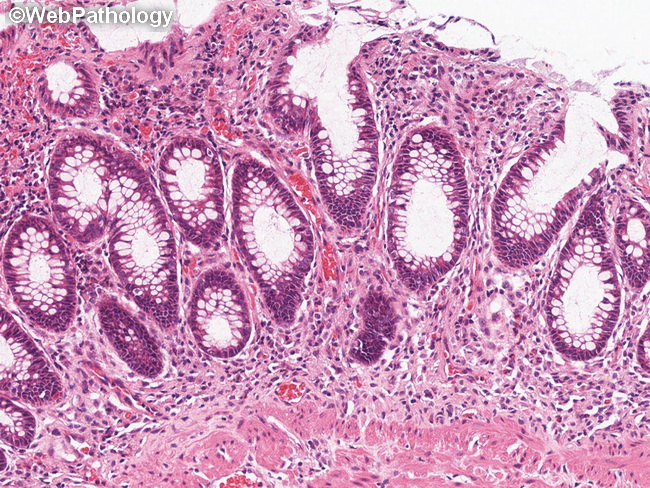Systemic Mastocytosis : GI Tract


Comments:
Gastrointestinal Involvement in Systemic Mastocytosis (SM): Gastrointestinal symptoms develop in 60-80% of patients with SM and consist of abdominal pain, nausea, vomiting, diarrhea, and malabsorption. In many cases, they are caused by mediator release since not all symptomatic patients show increased number of gastrointestinal mucosal mast cells (MCs). The diagnostic hallmark of GI tract involvement in SM is the presence of small groups or compact intramucosal clusters of MCs, usually in the deeper layers of lamina propria near muscularis mucosae. This finding is not seen commonly. Small and large bowel are involved more frequently than stomach. These compact MC infiltrates can appear bandlike, subepithelial or may seem to be diffuse and distorting the crypts falsely giving an impression of inflammatory bowel disease. Increased numbers of loosely distributed MCs (mast cell hyperplasia) may also occur in reactive conditions. In this colonic biopsy, there is slight increase in the number of inflammatory cells in the lamina propria, but they are not readily apparent as mast cells.



